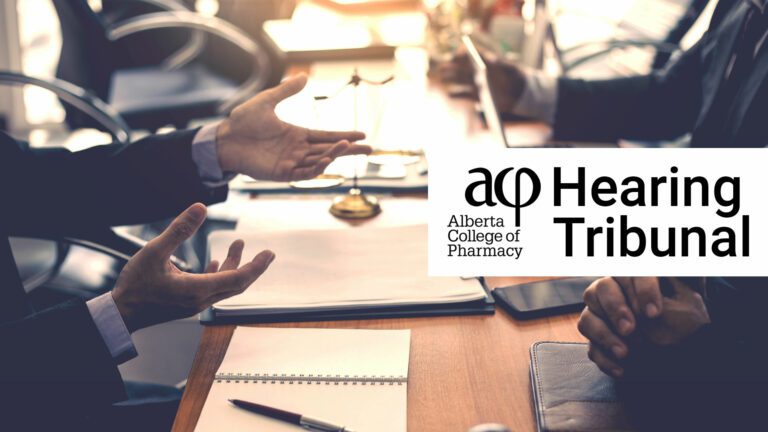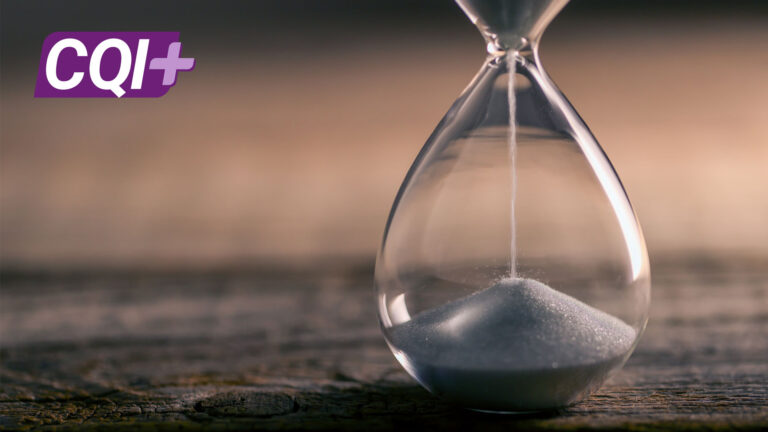
Since January 2019, five Hearing Tribunals have been appointed to address the conduct of five pharmacists who failed to fulfill their professional declaration and failed to meet their regulatory requirement to carry professional liability insurance (PLI) while on the clinical register. In three of these cases, the Hearing Tribunals have issued their written decisions on the merit and orders (May 29, 2019, August 8, 2019, and August 14, 2019). It is anticipated that the written decisions on the other two cases will be issued shortly and will be communicated thereafter.
The pharmacists’ failures were determined by Hearing Tribunals to be acts of unprofessional conduct. In their decisions, the Hearing Tribunals affirmed the necessity for registrants to fully comply with the declarations they provide to ACP and the requirement to maintain PLI while on the clinical register (or on the pharmacy technician register for pharmacy technicians). The Hearing Tribunals went on to outline that the autonomy our registrants enjoy as members of a self-regulating profession must be supported by our registrants’ steadfast fulfillment of their declarations.
As a pharmacist, or a pharmacy technician, if you do not have proper PLI, you can NOT be on the clinical or pharmacy technician register, regardless if you are in active practice or not.
In these matters, the Tribunals imposed costly penalties, even though in all matters the pharmacists’ actions were unintentional, they showed genuine remorse, there had been no previous history of unprofessional conduct on the part of the pharmacists, and there was no demonstrated patient harm. For each pharmacist the Tribunals ordered the following:
- a reprimand,
- a payment of $7,000 towards the costs of the investigation and hearing, and
- a fine of $1,000.
Rationale for the Tribunals’ decisions is reflected in the following statements:
Section 40(1)(c) of the Health Professions Act and Section 13 of the Pharmacists and Pharmacy Technicians Profession Regulation state that regulated members must possess professional liability insurance in order to obtain a practice permit. This is necessary to protect the public when receiving pharmacy services, including advanced scope of practice activities such as administering medications by injection and prescribing. [from the May 29, 2019 Hearing Tribunal]
… … …
Pharmacists are a self-regulated profession and one of the foundations of a self-regulating profession is that their members are diligent and trustworthy in their practice to ensure public safety. Breach of these standards, even if unintentional, has the potential to harm the public, as well as the reputation of pharmacy both within the profession as well as within society as a whole. [from the May 29, 2019, Hearing Tribunal]
… … …
It is a fundamental expectation that when a pharmacist completes their professional declaration, that the statements declared can be counted on to be true. False declarations, due to errors in judgement, lack of attention, or any other reason – deliberate or not, have the capacity to harm the public and undermine the integrity of the profession in the eyes of the public and are therefore taken very seriously. [from the May 29, 2019, Hearing Tribunal]
Pharmacists and pharmacy technicians – incorporate these lessons into your approach to professional declarations and maintaining PLI:
- Review your professional obligations in fulfilling your declarations and in maintaining proper PLI. Excellent information about the declarations and PLI requirements can be found in ACP’s The Link, ACP News, and the Guidelines for audits of professional declarations on the ACP website, and are customarily sent to registrants during the renewal period.
- Keep your licensee, pharmacy employer, and ACP informed of your permit status.
- Review and understand all aspects of all declarations you provide ACP. If you are not certain about what you are declaring, DON’T guess or assume. Clarify any uncertainty you might have BEFORE you provide a declaration.
- If you think you need help understanding or fulfilling a declaration, ask for and accept assistance.
- Do not allow your personal circumstances to negatively affect your professional obligations.
Discuss these matters with your peers.




